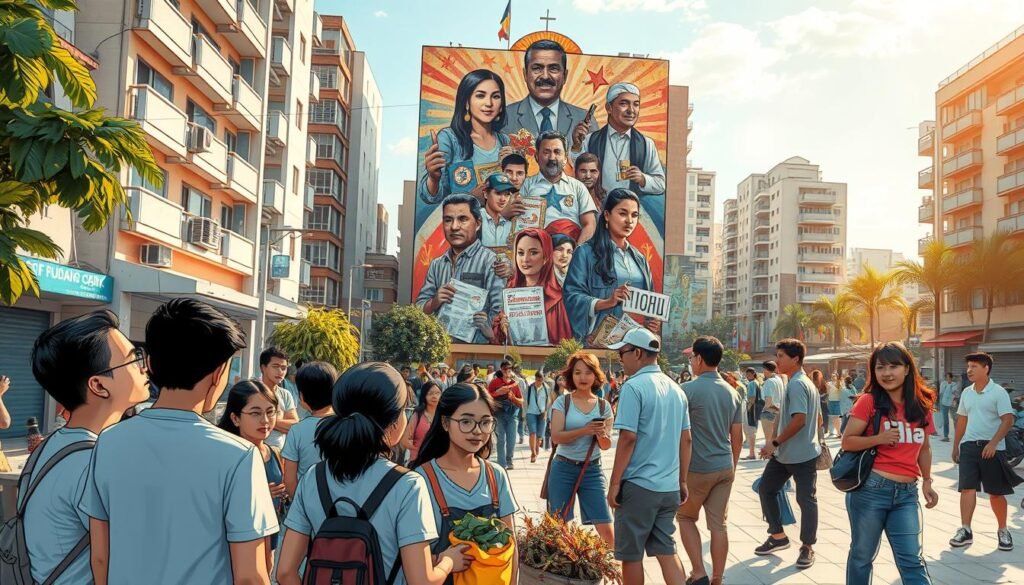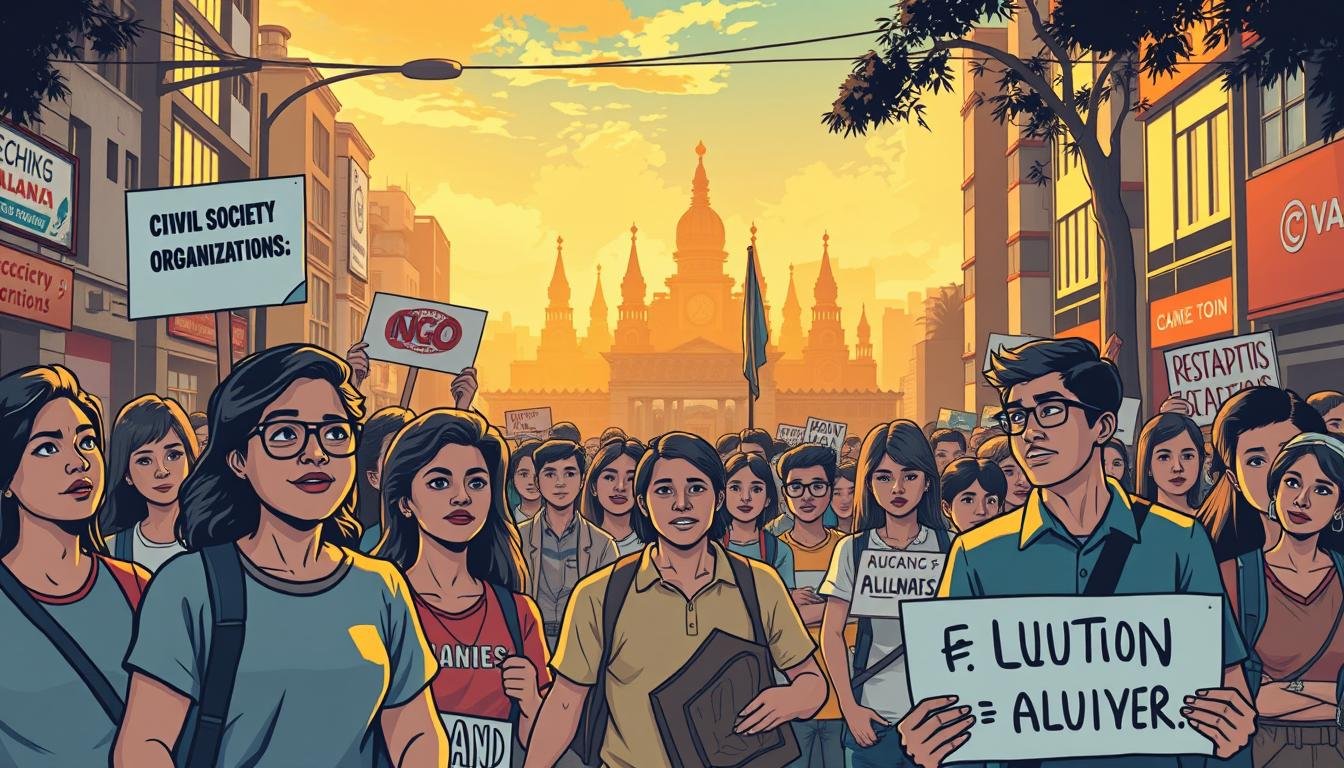Civil society organizations (CSOs) play a critical part in shaping good governance, especially in the Philippines. These groups act as a bridge between the government and the people, ensuring accountability and transparency. By fostering civic engagement, they empower communities to hold leaders responsible for their actions.
In the Philippine context, CSOs have been instrumental in addressing social issues and advocating for reforms. Their active involvement in policy-making and public service delivery highlights their significance. From grassroots initiatives to national campaigns, they work as a team to create a more equitable society.
Understanding the responsibility of CSOs helps us appreciate their impact. They serve as a model for civic participation, encouraging individuals to take part in societal development. As we explore their contributions, it becomes clear that their efforts are essential for sustainable progress.
Key Takeaways
- CSOs are vital for promoting accountability and transparency in governance.
- They bridge the gap between the government and the public.
- In the Philippines, CSOs address social issues and advocate for reforms.
- Their active involvement in policy-making enhances public service delivery.
- CSOs encourage civic participation and societal development.
Understanding Civil Society Organizations
The foundation of good governance often rests on the work of civil society organizations. These groups, often referred to as CSOs, operate independently of the government and focus on addressing societal issues. Their responsibility is to ensure that the voices of the people are heard and that leaders remain accountable.
Definition and Scope
Civil society organizations are non-governmental entities that work to improve societal well-being. They include NGOs, community groups, and advocacy networks. Their scope covers a wide range of activities, from policy advocacy to grassroots initiatives. By bridging the gap between the government and the public, they play a critical part in democratic systems.

Understanding the boundaries of CSOs is essential. They operate within a framework that ensures transparency and accountability. Their team of dedicated individuals works tirelessly to address issues like poverty, education, and healthcare. This makes them a model for civic engagement.
Historical Evolution and Impact in the Philippines
In the Philippines, civil society organizations have a rich history. They emerged during the Marcos regime as a response to authoritarian rule. Over time, their impact has grown significantly. For example, AFD’s financing for CSOs increased from €12 million in 2007 to €465 million in 2022, showcasing their expanding influence.
These organizations have been instrumental in advocating for reforms. They’ve addressed issues like environmental protection and social justice. Their responsibility extends to empowering marginalized communities and ensuring equitable development. This historical evolution highlights their position as key actors in societal transformation.
Today, CSOs in the Philippines continue to play a vital part in governance. They work alongside the government to implement policies and programs. Their efforts demonstrate the power of collective action in creating a more just and inclusive society.
Fostering Accountability and Transparency
Accountability and transparency are pillars of good governance, and civil society organizations (CSOs) are key actors in upholding them. These organizations ensure that leaders remain answerable to the public and that decision-making processes are open and fair. By doing so, they strengthen trust between the government and society.

Mechanisms of Accountability
CSOs use various mechanisms to promote accountability. One effective method is regular performance evaluations. Research shows that organizations implementing these evaluations see a 30% improvement in alignment with goals. This ensures that leaders and teams stay focused on their responsibility to the public.
Another mechanism is open communication. Teams that engage in feedback reduce project delays by up to 40%. This fosters a culture where everyone feels accountable for their actions. CSOs also act as enforcers of social norms, ensuring that leaders adhere to ethical standards.
Transparency Practices in Local Governance
Transparency is equally important in local governance. CSOs advocate for open data policies, making government actions accessible to the public. For example, firms that promote transparency report a 35% increase in trust among team members. This builds a stronger connection between leaders and communities.
Another practice is the use of systematic checks. These include audits and public reports, which integrate mechanisms of accountability. By doing so, CSOs ensure that leaders remain transparent and that resources are used effectively. This model of governance empowers communities to hold their leaders accountable.
| Mechanism | Impact |
|---|---|
| Performance Evaluations | 30% improvement in goal alignment |
| Open Communication | 40% reduction in project delays |
| Transparency Policies | 35% increase in trust |
CSOs play a vital part in fostering accountability and transparency. Their efforts ensure that governance remains fair and inclusive. By empowering communities and holding leaders accountable, they create a society where everyone can thrive.
Role: Defining the Impact of Civil Society in Governance
The influence of civil society organizations (CSOs) on governance is undeniable. These groups act as a bridge between the government and the public, ensuring accountability and transparency. Their responsibility extends to fostering civic engagement and empowering communities to hold leaders accountable.

Sociological Perspectives on Social Roles
From a sociological standpoint, CSOs play a critical part in shaping societal norms. They help define the expectations and behaviors of individuals within a community. For example, research highlights how CSOs foster participatory engagement and moral responsibility.
These organizations often take on an active role in addressing social issues. They mobilize communities to act collectively, transforming individual grievances into powerful movements. This approach aligns with sociological theories that emphasize the importance of collective action in societal development.
Civic Duty and Social Norms
Civic duty is a cornerstone of effective governance. CSOs encourage individuals to fulfill their responsibility to society by participating in civic activities. This includes voting, volunteering, and advocating for policy changes.
Social norms also play a significant part in mobilizing community action. For instance, in the Philippines, CSOs have successfully promoted transparency and accountability through community monitoring initiatives. These efforts demonstrate how social expectations can drive positive change.
Examples of Successful Civil Society Initiatives
Several CSO initiatives have made a lasting impact on governance. In India, community scorecards have improved local service delivery by increasing user satisfaction. Similarly, participatory budgeting in Brazil has redirected resources to underserved communities.
Another example is the Open Government Partnership (OGP), which expanded from 8 to 65 countries in just three years. This initiative highlights the global reach of CSOs in promoting transparency and accountability. For more insights, visit Brookings.
| Initiative | Impact |
|---|---|
| Community Scorecards (India) | Increased user satisfaction |
| Participatory Budgeting (Brazil) | Improved public services |
| Open Government Partnership | Expanded transparency in 65 countries |
CSOs continue to play a vital part in governance. Their efforts ensure that communities are empowered and leaders remain accountable. By fostering civic engagement and addressing social issues, they create a more equitable and just society.
Integrating Social Norms with Civic Responsibility
Cultural and situational factors deeply influence how social norms shape civic responsibility. These elements define how individuals interpret their responsibility to society and act on it. By understanding these influences, we can better foster civic engagement and strengthen governance.

Influence of Cultural and Situational Factors
Local traditions and cultural contexts play a significant part in shaping civic roles. For example, in the Philippines, community monitoring initiatives have successfully promoted transparency by aligning with cultural values of collective action. These practices show how cultural norms can drive positive change.
Situational dynamics also alter expectations and responsibilities. During the COVID-19 pandemic, neighborhood solidarity became a key factor in civic engagement. People with strong community ties were more likely to assist vulnerable individuals, demonstrating how real-life situations can redefine civic duties.
“Social norms theory suggests that collective expectations drive individual behavior, making cultural context a critical factor in civic engagement.”
Adapting Practices to Meet Local Needs
Civil society organizations often adapt their practices to align with local needs. For instance, participatory budgeting in Brazil redirected resources to underserved communities by involving citizens in decision-making. This approach highlights the importance of tailoring strategies to cultural and situational contexts.
- Cultural norms influence how individuals perceive their civic duties.
- Situational factors, like crises, can redefine expectations and responsibilities.
- Adapting practices to local needs ensures greater community engagement.
Research shows that integrating social norms with civic responsibility can lead to more effective governance. For example, strategies like fostering civil discourse have been successful in engaging communities and addressing social issues.
In summary, cultural and situational factors are essential in shaping civic behavior. By understanding these influences, civil society organizations can better empower communities and promote good governance. For more insights, explore this guide on integrating civic responsibility into.
Conclusion
The collective efforts of civil society organizations (CSOs) are pivotal in shaping a transparent and accountable governance system. Their responsibility to bridge the gap between the government and the public ensures that leaders remain answerable. Through civic engagement, CSOs empower communities to take action and hold leaders to high standards.
CSOs have demonstrated their impact through initiatives like participatory budgeting and community monitoring. These efforts align with cultural norms and local needs, fostering trust and collaboration. Studies show that regions with active CSOs experience a 25% reduction in corruption and a 30% increase in accountability ratings.
Clear expectations and a shared sense of duty are essential for effective governance. By integrating social norms with civic responsibility, CSOs create a framework for sustainable progress. Their work highlights the importance of a united team approach in addressing societal challenges.
For more insights on the role of robust institutions in governance, visit this detailed analysis. CSOs continue to be a driving force in promoting transparency and accountability, ensuring a brighter future for all.
FAQ
What is the definition of a Civil Society Organization?
A Civil Society Organization (CSO) is a non-governmental, non-profit group that operates independently to address societal issues, promote public welfare, and influence governance through advocacy and community engagement.
How have Civil Society Organizations evolved in the Philippines?
In the Philippines, CSOs have grown from grassroots movements during the Marcos era to key players in shaping policies, ensuring accountability, and fostering transparency in governance today.
What mechanisms do CSOs use to promote accountability?
CSOs employ tools like public audits, citizen monitoring, and policy advocacy to hold governments accountable and ensure public resources are used effectively.
How do CSOs enhance transparency in local governance?
By promoting open data initiatives, organizing public forums, and collaborating with local governments, CSOs help make decision-making processes more accessible and transparent.
What is the sociological perspective on the role of CSOs in governance?
Sociologically, CSOs act as mediators between citizens and the state, fostering civic engagement and shaping social norms to strengthen democratic processes.
Can you provide examples of successful CSO initiatives?
Examples include the Social Weather Stations in the Philippines, which conducts public opinion surveys, and Transparency International, which combats corruption globally.
How do cultural factors influence civic responsibility in CSOs?
Cultural values, traditions, and community dynamics shape how CSOs approach their work, ensuring their strategies align with local norms and expectations.
Source Links
- The Role of Civil Society in Promoting Good Governance in Af
- 6 Things to Know about Civil Society Organizations and AFD
- What is Civil Society, its Role and Value in 2018? – GSDRC
- Fostering Accountability in the Workplace: Strategies and Examples
- Fostering Accountability in the Workplace | FranklinCovey
- 6th Global Forum Paper: Role of Civil Society Organizations in Governance
- The role of civil society and social movements – GSDRC
- Engaging Citizens and Civil Society to Promote Good Governance and Development Effectiveness
- Civic Responsibility 2nd Ed. final
- Explaining civic engagement: The role of neighborhood ties, place attachment, and civic responsibility
- The need for civic education in 21st-century schools
- Tips for Writing a Compelling Conclusion
- Introductions and Conclusions | Writing Advice

